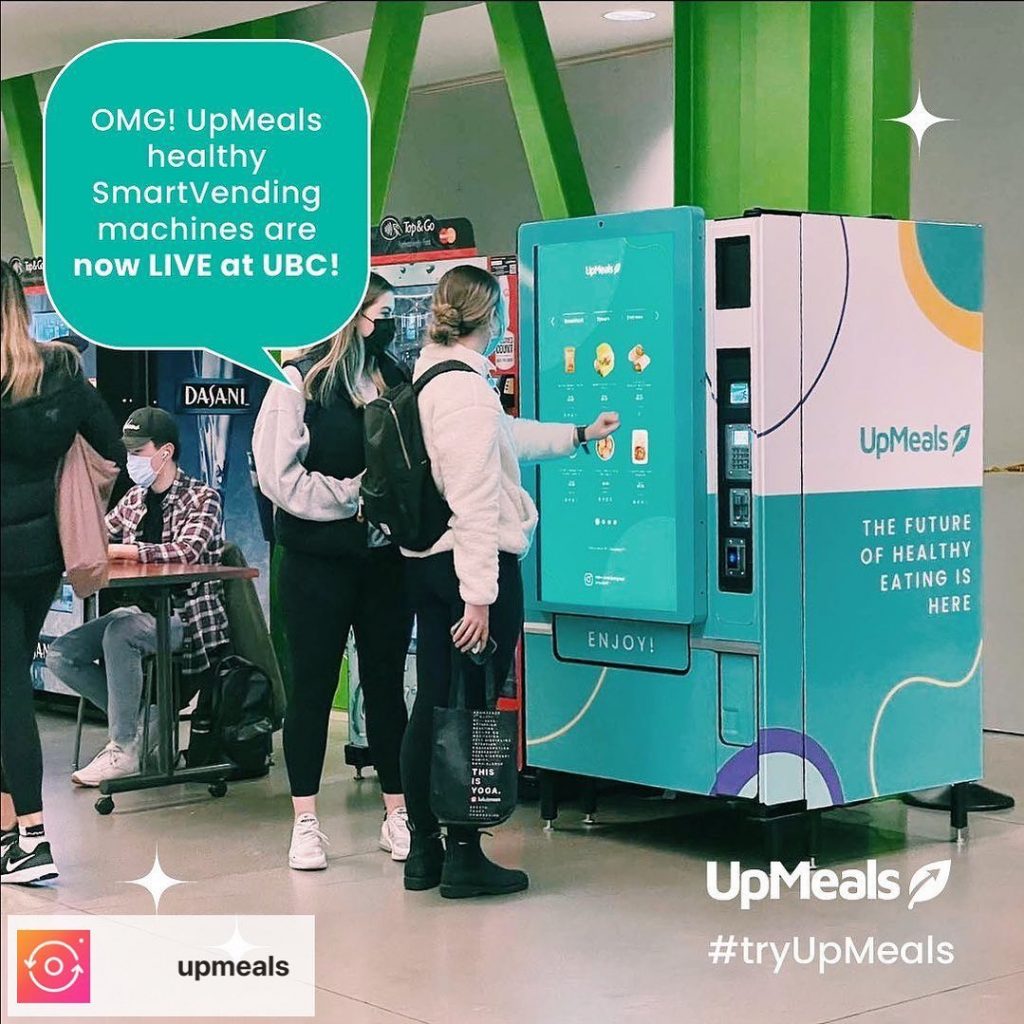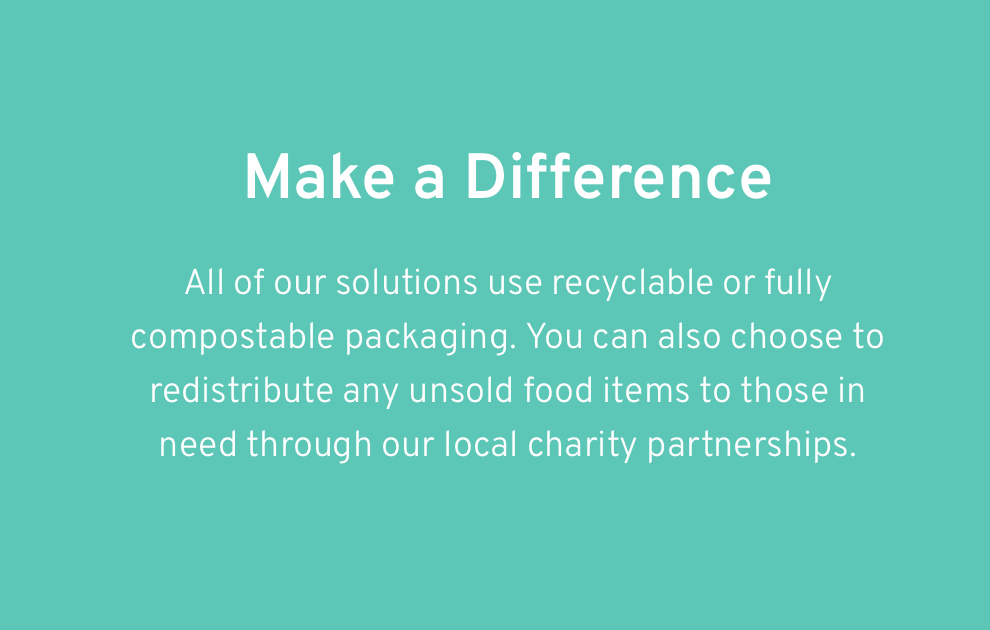
The most exciting addition to the Sauder building this year would definitely be the installation of the UpMeals SmartVending machine in the CPA Hall. The delicious food from this machine has been the cure to my 2 am hunger pangs during the all-nighters I have pulled during exam season. As I spent the last few days of this term in this building, I was curious as to if UpMeals is just good for my hunger or is it also good for the environment?
The first search result that appeared when I googled UpMeals SmartVending machine was an article titled “UpMeals, the First Healthy and Sustainable SmartVending Meal Solution Launches in BC” which instantly made me happy as that’s exactly was I was hoping for. The article states the meals in the vending machines are “sustainably packaged”. Further exploring the website, I was trying to find more information about their sustainable endeavours, perhaps a webpage about their sustainable packaging. Instead, all I found was a small box labelled “Make a Difference” which mentioned that all their packaging is either “recyclable or full compostable”. This was a bit surprising to me because for a product that labels itself the first “sustainable” SmartVending machine in BC, I expected a lot more elaboration on how exactly they are sustainable. This would include giving more detail in to where they get their recyclable and compostable packing from, what do they do with the packaging of the unsold food that has gone bad – do they reuse the recyclable ones as the packaging is untouched?

Screenshot of the only sustainability information on the UpMeal website
Having concerns with the lack of detail or shared knowledge with consumers about sustainable packaging brings me back to our first client challenge with goodnatured. A striking pattern in all presentations was one of recommending the brand to be more transparent about their products and activities. This refers to rule #15 of “The New Rules of Green Marketing” in which brands are encouraged to practice “radical transparency” to make consumers trust them more. Going off being radically transparent, we can compare UpMeals and VEJA (from my previous post) and how different their approach to marketing their environmentally friendly product is. VEJA hates the word “sustainability” and yet has detailed chapters about how its shoes and operations are geared towards helping the environment and on the other hand, UpMeals has “sustainable” in its first search result and yet gives us just one sentence about how sustainable they are.
Answering my own blog tittle, the words “Recyclable” and “Compostable” are not enough.
Sources
https://ebookcentral.proquest.com/lib/ubc/reader.action?docID=646579
https://blogs.ubc.ca/janvisinghcomm484/veja-hates-the-word-sustainability/
EmilyMiles
April 15, 2022 — 11:52 pm
Hi Janvi, I’m glad you covered UpMeals! I’ve been curious about that machine and haven’t tried anything yet, although I guess I might have to now. I also wrote a blog post on “sustainable packaging” that focused on bioplastics. What’s really interesting is that bioplastics are not always a more eco-conscious choice; the products create more pollutants than traditional plastics, and sourcing fossil-fuel inputs would be a lower-emitting alternative if renewable electricity is used. I think these companies know that sustainable/compostable is associated with being good for the earth and use it as greenwashing.
PS: Sauder building is open until 2am?
JanviSingh
April 16, 2022 — 12:05 am
Hi Emily, thanks for your comment!
I definitely agree with you about your greenwashing point – in UpMeals case, I believe it would be the sin of vagueness as just calling the packaging “sustainable” is enough. Now that I think of it I should’ve probably incorporated that reading into my post hahaha.
Also yes, the main floor of the building is open 24/7! You’ll probably always find me here at the strangest hours during exam season.